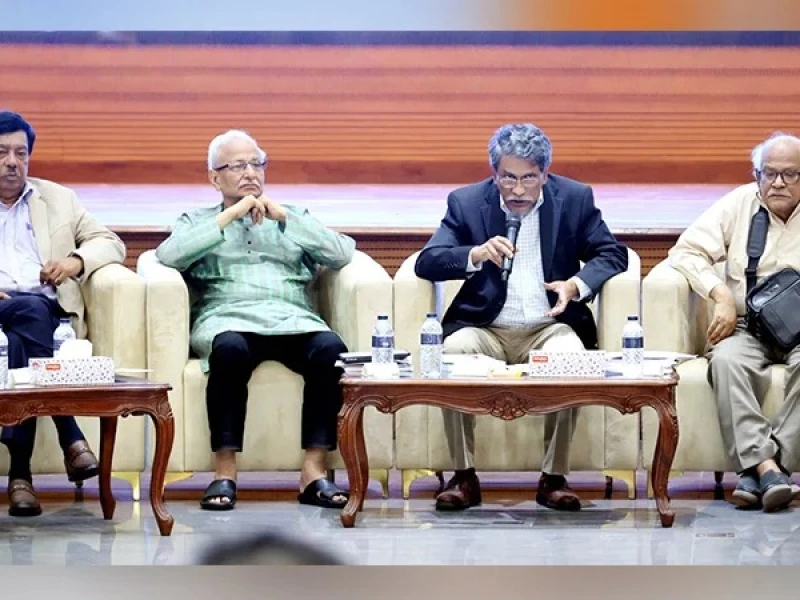A significant consensus was reached among political parties on Sunday, agreeing to hold a referendum on the implementation of the July National Charter 2025.
This crucial development, however, is overshadowed by lingering disagreements regarding the precise timing of the plebiscite and the implementation procedure.
The announcement was made by Prof. Ali Riaz, vice chair of the National Consensus Commission (NCC), following a prolonged dialogue with party representatives in the capital. He hailed the agreement as "the first major step" and a "big achievement" in the implementation process.
People's Consent Deemed Essential
The NCC-chaired discussion, held from 11:45 am to 5:00 pm with a lunch break at the Foreign Service Academy, focused on determining the process for implementing the Charter, particularly its Constitution-related reform recommendations.
All political parties have agreed to hold a referendum for their (people’s) consent," Prof. Riaz stated, emphasizing that ensuring people’s participation is essential for the Charter's success.
Legislative Structure Proposal and Judicial Opinion Shift
Beyond the referendum, a practical agreement was also reached on the structure for the new legislature to be formed after the next parliamentary election.
The NCC proposed giving the legislature formed through the February election "such characteristics" that the proposed constitutional amendments, based on the July Charter, can be easily completed.
Furthermore, a previous suggestion by some parties to seek the opinion of the Supreme Court under Article 106 of the Constitution now appears largely unnecessary. The NCC vice chair confirmed that most parties now feel this step "may no longer be necessary," suggesting a growing convergence of opinion.
Credit to Parties for 'Tolerance' and 'Courage'
Prof. Riaz specifically acknowledged the "tolerance" and "courage" shown by the political parties in setting aside their rigid, previous positions. He commended them for moving away from strict party lines and playing "a role in building national unity," which he views as a major step forward for implementing the Charter.
Earlier in the day, commission members met with Interim Government Chief Adviser and NCC chief Prof. Muhammad Yunus, who urged the commission to finalise its recommendations quickly.
Deadline Looms: Recommendations Expected by Oct 15
The commission is now focused on the final stages of its work, with Prof. Riaz expressing hope that the final recommendations will be completed and submitted to the government by October 15, the day the NCC's tenure is set to expire. He affirmed that the commission does not see a need to extend its tenure beyond this date.
The vice chair also confirmed that three-fourths of the 30 parties involved in the discussions have already submitted the names of representatives to sign the Charter.
Another meeting with political parties and alliances is scheduled for October 8. The NCC also plans to hold separate meetings with its expert panel to clarify the legal and constitutional framework surrounding the latest proposals for the Charter's implementation.


-1759665306.webp) Prev Post :
Prev Post :
-1759674638.webp)